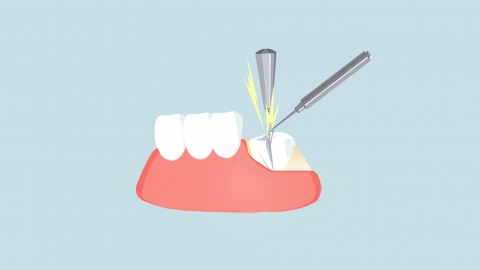What should be done about cavities in children's baby teeth?
Generally, childhood caries in primary teeth may be related to factors such as genetic predisposition, poor oral hygiene habits, reduced saliva secretion, high-sugar diets, and dental malalignment. Patients can alleviate symptoms through good oral hygiene practices, increased water intake, orthodontic treatment, regular dental checkups, and other measures. It is recommended that patients seek timely medical attention at a hospital and follow medical advice for treatment. Detailed analysis is as follows:

1. Genetic factors: If there is a high incidence of caries within the family, children may also face an increased risk of developing caries. Effective prevention can be achieved through enhanced oral hygiene education and regular dental examinations.
2. Poor oral hygiene habits: If children fail to establish good brushing habits or if parents do not promptly assist in cleaning their children's mouths, food residues and bacteria can form dental plaque on the tooth surfaces, gradually eroding the enamel and causing caries. Parents should supervise children to develop the habit of brushing teeth in the morning and evening, using soft-bristled toothbrushes and fluoride toothpaste suitable for children.
3. Reduced saliva secretion: Saliva has natural antibacterial properties and can neutralize the acidic environment in the mouth, reducing the occurrence of caries. Children with lower saliva production may have an oral environment more conducive to bacterial growth. Encourage children to drink more water to promote saliva secretion.
4. High-sugar diet: Oral bacteria break down sugars to produce acidic substances, which lower the oral pH, damage the enamel structure, and lead to caries. Limit children's intake of high-sugar foods and beverages, encourage increased water consumption, and rinse the mouth after meals to reduce sugar residue in the oral cavity.
5. Dental malalignment: Dental crowding or misalignment may result in areas that are difficult to clean thoroughly, increasing the risk of caries. Regular orthodontic evaluations should be conducted, and corrective treatment should be performed when necessary to improve tooth alignment and facilitate daily cleaning.
During treatment, parents should enhance children's oral health education, cultivate good oral hygiene habits, and prevent the occurrence of caries.




